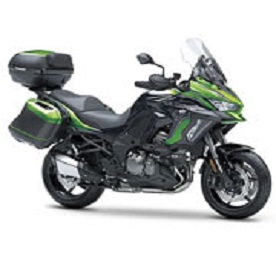

Delivery bikes are bicycles specifically designed and used for transporting goods or making deliveries. They are commonly employed by businesses in urban areas to navigate through congested traffic and make quick deliveries. Delivery bikes come in various designs and configurations to accommodate different types of cargo and delivery requirements.
These bikes typically feature sturdy frames, often made of steel or aluminum, to withstand the weight of the cargo and provide stability. They may have extended frames or racks to support large or bulky items, and some models include baskets, panniers, or cargo trailers for additional storage capacity.
Delivery bikes are designed to prioritize functionality and maneuverability. They often have smaller wheel sizes for better control and agility in crowded areas. The handlebars are typically positioned in an upright or semi-upright position to provide a comfortable riding posture and allow the rider to have a clear view of their surroundings.
Some delivery bikes may have electric assistance in the form of electric motors or pedal-assist systems. This feature helps riders cover longer distances or carry heavier loads with less effort, making deliveries more efficient and reducing fatigue.
Delivery bikes are used by a wide range of businesses, including food delivery services, courier services, and local businesses offering same-day or express delivery. They offer several advantages over motorized vehicles, such as lower operating costs, a reduced carbon footprint, and the ability to access areas with limited parking or restricted vehicle access.
Overall, delivery bikes are a practical and eco-friendly solution for urban delivery services. They provide a cost-effective and efficient means of transporting goods while contributing to sustainability and reducing traffic congestion.